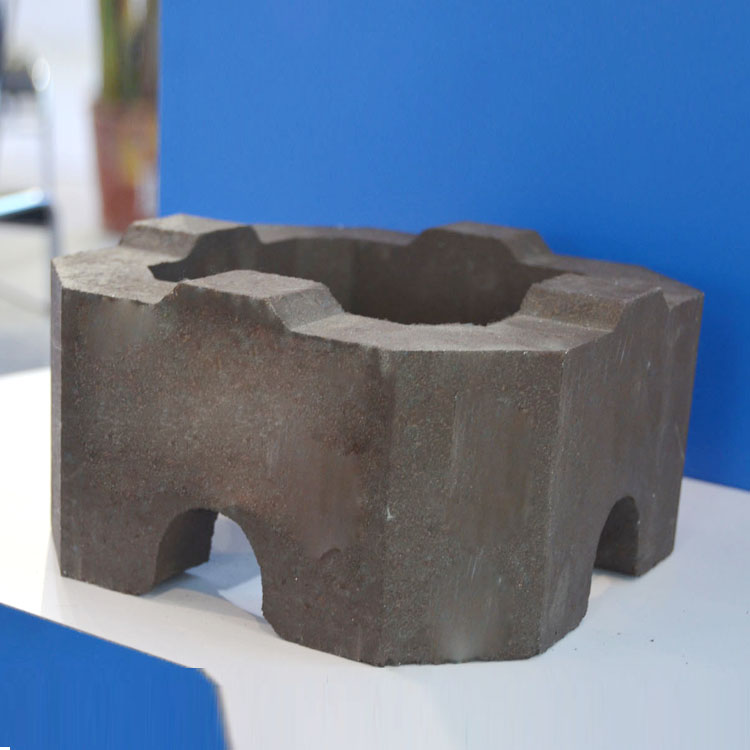.jpg?x-oss-process=image/resize,h_1000,m_lfit/format,webp)
In high-temperature industries, such as metallurgy and glass manufacturing, companies often face a series of challenges. High-temperature corrosion, material instability, and high costs are some of the most pressing issues. These problems not only affect the efficiency of production but also increase the maintenance and replacement costs, posing a significant threat to the economic benefits of enterprises. Fortunately, ordinary magnesia-chrome bricks offer a stable solution for these industries.
Ordinary magnesia-chrome bricks are a type of high-strength refractory material known for their excellent performance in high-temperature environments. Firstly, they have high strength, which can withstand the mechanical stress in high-temperature furnaces. Tests show that their compressive strength can reach up to 50 MPa, ensuring the stability of the furnace structure.
Secondly, these bricks are highly corrosion-resistant. They can resist the erosion of various corrosive substances at high temperatures, such as slag and molten metals. Their corrosion rate is as low as 0.1% per year, which significantly extends the service life of the furnace lining.
In addition, ordinary magnesia-chrome bricks have good thermal shock stability. They can withstand rapid temperature changes without cracking or spalling. This property is crucial in high-temperature industries where the temperature in the furnace often fluctuates. For example, they can endure temperature changes of up to 1000°C in a short time without significant damage.
Moreover, their anti-slag performance is outstanding. They can effectively prevent the penetration of slag into the furnace lining, protecting the furnace from damage. The anti-slag rate can reach 95%, which is much higher than that of many other refractory materials.
Ordinary magnesia-chrome bricks have a wide range of applications in high-temperature industries. In the metallurgical industry, they are used in steelmaking furnaces, electric arc furnaces, and ladles. Their high strength and corrosion resistance ensure the long-term stable operation of these equipment. In the glass manufacturing industry, they are used in glass melting furnaces. Their thermal shock stability and anti-slag performance can effectively improve the quality of glass products and reduce production costs.
.jpg)
When compared with similar materials like magnesia bricks, ordinary magnesia-chrome bricks have obvious advantages. Magnesia bricks have relatively poor thermal shock stability and anti-slag performance. In contrast, ordinary magnesia-chrome bricks can better adapt to the complex working conditions in high-temperature industries, providing more reliable protection for equipment and reducing the frequency of maintenance and replacement.
Many companies have benefited from using ordinary magnesia-chrome bricks. For example, a metallurgical enterprise in Europe replaced the original refractory materials with ordinary magnesia-chrome bricks in its steelmaking furnace. As a result, the service life of the furnace lining was extended from 6 months to 18 months, reducing the maintenance cost by 40% and increasing the production efficiency by 20%. Another glass manufacturing company in Asia used ordinary magnesia-chrome bricks in its glass melting furnace. The quality of glass products was significantly improved, and the energy consumption was reduced by 15%.

In conclusion, ordinary magnesia-chrome bricks, with their excellent performance and wide range of applications, are an ideal choice for high-temperature industries. They can effectively solve the problems faced by these industries, reduce costs, and improve economic benefits. If you are in the high-temperature industry and are looking for a reliable refractory material, we encourage you to learn more about ordinary magnesia-chrome bricks. Contact us now to explore how this product can bring more value to your business!
Discover the benefits of ordinary magnesia-chrome bricks for yourself. Contact our team today to get more information and start your journey towards more efficient and cost-effective production.

